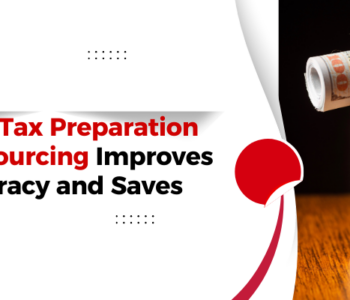 Business
Business
Why Information Security Managers Should Consider the ISO 27001 Lead Auditor Course
If you’re an Information Security Manager, the pressure to keep your organization’s data secure, meet regulatory requirements, and stay ahead of cyber threats is real. Whether you’re already familiar with the ins and outs of ISO 27001 or are still getting your head around it, there’s one thing you can’t ignore: the value of becoming an ISO 27001 Lead Auditor.
But why should you consider this course, and how could it shape your career?
Let’s dive into it.
A Quick Introduction to ISO 27001: The Backbone of Information Security Management
You don’t need to be a cybersecurity expert to know that information security is more critical than ever. With every day bringing new challenges, the need for organizations to protect sensitive information is undeniable. Enter ISO 27001, the international standard for Information Security Management Systems (ISMS). It provides a systematic framework for managing sensitive company information to ensure it remains secure.
Now, imagine this: You’re tasked with implementing, monitoring, and improving your company’s ISMS. It’s no small feat. The process requires a solid understanding of the standard itself, not just in theory but in practice. And that’s where becoming a certified Lead Auditor can help.
What Does an ISO 27001 Lead Auditor Do?
In a nutshell, the role of an iso 27001 lead auditor course is to assess an organization’s ISMS to ensure it aligns with ISO 27001’s standards. As a Lead Auditor, you’re the gatekeeper to ensuring data security is not just a buzzword but a commitment to your organization’s long-term health.
This isn’t just about ticking boxes. It’s about understanding the intricate relationship between policies, procedures, and the technical controls in place. You’re ensuring that information security isn’t a one-time effort but an ongoing, evolving commitment.
Let me ask you, as an Information Security Manager: How valuable would it be to lead an audit that could not only elevate your company’s security posture but also bolster its reputation?
So, Who Exactly Should Take This Course?
As an Information Security Manager, you are in a unique position to benefit from this course. You’ve likely been involved in managing ISMS or overseeing security processes. However, becoming a Lead Auditor opens a whole new realm of knowledge and opportunities. Here’s who else could benefit:
- IT Managers who are involved in the technical side of security implementation
- Compliance Officers who need to ensure the organization follows required standards
- Internal Auditors seeking to gain a deeper understanding of information security audits
- Cybersecurity Consultants looking to expand their service offering
- Risk Managers who assess vulnerabilities and need to understand audit processes for comprehensive risk assessments
The skills you gain from this course will enable you to bring valuable insights into the organization and help your team identify potential gaps in the system.
Why Should Information Security Managers Get ISO 27001 Lead Auditor Certification?
You might be wondering, “Isn’t my role as an Information Security Manager enough? Do I really need to take the time to become a certified Lead Auditor?” The short answer: Yes. Here’s why:
Master the Art of Risk-Based Thinking
ISO 27001 is all about risk management—identifying, assessing, and mitigating risks. Becoming a Lead Auditor will sharpen your ability to evaluate the effectiveness of controls and understand the broader context of risk management across your organization.
Enhance Your Credibility
As an Information Security Manager, your reputation is everything. Achieving Lead Auditor certification adds weight to your role. Not only does it demonstrate a deep understanding of ISO 27001, but it also reflects your leadership abilities. Being a certified Lead Auditor puts you at the helm of information security audits, which can elevate your status within the organization.
Improve Your Audit Skills
The ability to audit your organization’s ISMS and understand where gaps lie is a powerful skill. The Lead Auditor course will teach you how to conduct thorough audits, identify weaknesses, and provide recommendations for improvements. This is a skill set that directly impacts your organization’s bottom line.
Ensure Better Compliance and Reporting
In a world where data breaches are frequent and regulations are constantly evolving, ensuring your organization complies with relevant laws is a must. As a certified Lead Auditor, you’ll know how to navigate ISO 27001’s compliance requirements and make sure your organization doesn’t fall short.
Future-Proof Your Career
The landscape of information security is always shifting. By becoming a Lead Auditor, you set yourself up as a forward-thinking professional who can adapt to and shape the future of your organization’s information security strategy.
A Global Standard
ISO 27001 isn’t just a local standard—it’s recognized globally. Your certification will give you a competitive edge not only within your organization but across the industry. The ability to navigate global standards and lead audits in different regions can open up a world of career opportunities.
What’s Involved in the ISO 27001 Lead Auditor Course?
Wondering what the course entails? Here’s a breakdown of what you can expect:
Introduction to ISO 27001 and ISMS
This module covers the basics of ISO 27001 and ISMS. You’ll learn the terminology, structure, and requirements of the standard, as well as how to implement it effectively in your organization.
Audit Principles and Processes
You’ll gain an in-depth understanding of the audit process, from planning and execution to reporting. This includes learning how to assess risks, controls, and compliance with ISO 27001.
Conducting Internal Audits
You’ll focus on the steps involved in conducting internal audits, including document review, interviews, and evidence gathering. You’ll also learn how to assess the effectiveness of security measures in place.
Lead Auditor Skills and Techniques
This is where you’ll really get into the nitty-gritty of leading audits, including how to manage an audit team, communicate findings, and provide constructive feedback to improve the ISMS.
Reporting and Closing the Audit
Once the audit is complete, it’s time to report on your findings. This section covers how to prepare clear, actionable audit reports and how to ensure follow-up to make sure corrective actions are implemented.
The Road to Certification: What’s Involved?
After completing the course, you’ll be required to pass an exam to earn your certification. The exam typically tests your understanding of the key principles and processes involved in ISO 27001 audits.
It’s not just about passing the exam though; it’s about understanding the material and being able to apply it in real-world scenarios. The course is designed to give you both the knowledge and the practical experience to succeed as a Lead Auditor.
How Will This Change Your Workday as an Information Security Manager?
As an Information Security Manager, you’re probably juggling a thousand tasks. You’re creating policies, managing incidents, assessing risks—there’s always something going on. So how does adding Lead Auditor certification into the mix change your daily grind?
Well, for starters, it will give you a structured approach to auditing and assessing your organization’s ISMS. Rather than reacting to security incidents, you’ll be proactively auditing and improving the system. Think of it like shifting from fire-fighting mode to fire prevention mode.
Plus, with an official certification under your belt, you’ll have more authority when suggesting changes or improvements to the ISMS. Your recommendations will carry more weight with upper management.
Final Thoughts: Ready to Take the Leap?
In conclusion, becoming an ISO 27001 Lead Auditor isn’t just a career-enhancing move; it’s a way to take control of your organization’s information security. It equips you with the skills to assess, improve, and guide your ISMS to new heights of compliance, security, and effectiveness. As an Information Security Manager, you already understand the stakes involved in protecting sensitive information. Taking this course will not only solidify your expertise but also make you a key player in safeguarding your organization’s future.
So, what’s next? Are you ready to add another tool to your professional toolkit and take your career to the next level? Because this certification could be the game-changer you’ve been looking for.









